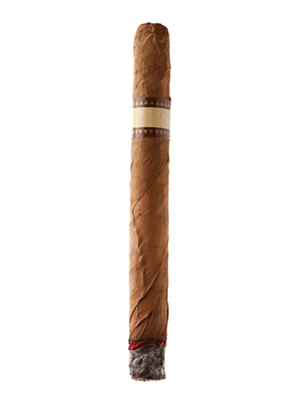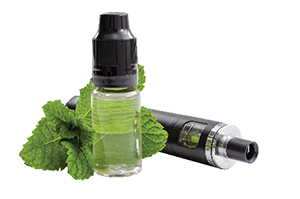 Nicotine and tobacco have long been the most regulated products in convenience stores. Limits on retail licenses, sky-high taxes, flavor bans and pack-size limits have become just a part of doing business. Then there are more aggressive regulations, such as Beverly Hills’ total tobacco ban, Brookline, Massachusetts’ prohibiting of tobacco sales to anyone born after 2000 and the state of Minnesota, where convenience retailers cannot sell menthol cigarettes but can sell THC edibles.
Nicotine and tobacco have long been the most regulated products in convenience stores. Limits on retail licenses, sky-high taxes, flavor bans and pack-size limits have become just a part of doing business. Then there are more aggressive regulations, such as Beverly Hills’ total tobacco ban, Brookline, Massachusetts’ prohibiting of tobacco sales to anyone born after 2000 and the state of Minnesota, where convenience retailers cannot sell menthol cigarettes but can sell THC edibles.
And that’s just at the local level. In the next couple years, the U.S. Food and Drug Administration (FDA) has plans to enact more wide-reaching tobacco actions since the agency took over tobacco regulations in 2009.
Here’s a look at where some of the most impactful potential regulations stand—and how tobacco retailers can best navigate them.
THE ISSUE: MENTHOL CIGARETTE/CIGAR FLAVOR BAN
In April 2022, the FDA proposed a rule that would, quite simply, ban the sale of all menthol cigarettes and all flavored cigars in the United States.
“There wasn’t a lot of nuance to it,” said Doug Kantor, NACS general counsel. Though simple, the implications are huge. “It’s the most significant and widespread [potential tobacco regulation] in terms of impact.”
Jennifer Kelly, a spokesperson for Altria Group Distribution Company, pointed to data showing menthol cigarettes generate $29 billion in annual retail sales, and flavored cigars generate an additional $4-5 billion.
“This total ban will shift products to illegal sellers at a heavy cost to retailers and their employees,” she said, noting that retailers could be forced to cut as many as 150,000 jobs.
It’s nearly impossible to predict the full retail impact because the FDA has never enacted such a wide-sweeping ban of a prominent segment, much less two.
“This would be very different than other things we’ve historically seen because menthols are just about a third of the cigarette market, and flavored cigars are about half of the cigar market,” Kantor said. “Losing that volume of sales to the black market would be a huge financial hit on the industry.”
The voices of small business have proven to matter in the minds of most lawmakers.”
How Retailers Can Navigate
The FDA is reviewing the hundreds of thousands of public comments on the proposed rule. The agency must evaluate and consider all these comments before issuing either a final rule or a new proposed rule, Kantor said. “There may be another opportunity to formally submit comments, perhaps even more than one,” he added.
Retailers can best respond to the proposal by vocalizing the huge impact this ban would have on their businesses, whether through formal comments or political engagement.
“Retailers should continue speaking up to regulators and policymakers, to ensure their voices are heard,” said Matt Domingo, senior director of external relations at R.J. Reynolds Tobacco Company. “The voices of small business have proven to matter in the minds of most lawmakers.”
 THE ISSUE: IN-STORE SIGNAGE REQUIREMENTS
THE ISSUE: IN-STORE SIGNAGE REQUIREMENTS
The last item remaining from the U.S. Department of Justice’s 1999 lawsuit against the major tobacco manufacturers is the communication of tobacco-related messages through signage at retail locations. Altria, R.J. Reynolds and ITG Brands reached an agreement on a proposed settlement with DOJ.
“The settlement agreement calls for no more than two signs to be placed within all contracted retail locations nationally for a duration of 21 months,” Domingo said. “The signs will be supplied and installed by the manufacturers or a third party, [and] retailers are expected to leave the signage in its intended location for the duration of the required period.”
Although the court has signed off on the settlement, there’s still significant time before the signage requirements will take effect: The agreement allows time for new contracts to be put in place, as well as for the signs to be distributed.
“The court approved the settlement on December 6, 2022, so the first signs will need to be in place by October 1, 2023,” said Kantor.
While the requirements will be “a hassle from a compliance perspective” and store operators may not like the signage, Kantor said “the truth is, because it will be across the industry, it’s not going to fundamentally change the marketplace. It’s burdensome but doesn’t have the same impact as these [other] FDA moves.”
This total ban will shift products to illegal sellers at a heavy cost to retailers and their employees.”
How Retailers Can Navigate
Part of the reason the signage requirement isn’t as problematic from a retail perspective is that the onus falls on manufacturers—not retailers—to get the signs up.
“All of this comes out of a lawsuit against [cigarette manufacturers], and they are heavily incentivized to make sure everybody does this right—and could be penalized if they don’t,” said Kantor.
Both Domingo with Reynolds and Kelly with Altria said their companies are creating support plans for retailers regarding the new signage requirements.
“Retailers will want to be in communication with their reps,” Kantor said. “A lot of the information will probably come from the manufacturers.”
THE ISSUE: VAPE PMTA APPROVALS/DENIALS
The electronic cigarette category continues to operate in a regulatory gray area as retailers wait on premarket tobacco application (PMTA) decisions by the FDA. Despite a deadline of September 9, 2021, the agency has not completed its review of the millions of PMTA applications received. The agency now says it will need until June 2023 to make decisions on all “covered applications” (referring to products from specific major brands or products that reach 2% of total retail dollar sales, according to NielsenIQ).
“The FDA has blown past every deadline,” Kantor said. “Both NACS and members of Congress have weighed in with FDA saying they need to be more open about the process, but that hasn’t happened.”
A prime example of this confusion is JUUL. The FDA took nearly two years on the decision to issue marketing denial orders (MDOs) on June 23, 2022, that would require retailers to stop selling all JUUL products. JUUL was quickly granted a stay while the court reviewed the denial orders. Less than two weeks after issuing the MDOs, the FDA put the decision on hold and explained via Twitter that it had determined “there are scientific issues unique to the JUUL application that warrant additional review.” The agency did not elaborate on how long that review would take.
“They haven’t been clear with the court,” Kantor said. “That’s incredibly frustrating.”
JUUL is just one example: The FDA also has nearly one million synthetic nicotine PMTAs to issue decisions on as well, and the industry is still waiting to see if the agency will approve any flavored vapor products.
“I don’t remember seeing any [flavors] approved,” said Kantor. “There are a lot of things that they haven’t decided yet.”
The big thing retailers should be doing is to spend time getting to know the people who represent them in government.”
How Retailers Can Navigate
Because of the slow and not-always-clear process, retailers wanting to remain in compliance are left in a lurch. It’s not just marketing denial orders they need to watch: They also need to ensure any manufacturer’s vapor product they’re selling submitted the required PMTA on time and that the agency hasn’t rejected said application.
“FDA does have some of the information on their website,” Kantor said. “It’s very difficult to follow, but there is a place to find it.”
The better option is working directly with trusted partners.
“Retailers have an obligation to verify the legal status of their product assortments,” said Domingo. They “should do so by obtaining the necessary information from the manufacturer or distributor to confirm that the product is the subject of a timely submitted and pending PMTA or a marketing granted order.”
THE ISSUE: STATE AND LOCAL REGULATIONS
While not as widespread as the FDA and federal-level regulations, state and local tobacco regulations remain the biggest threat to many retailers’ businesses because of the patchwork nature of such laws. Just ask Massachusetts operators, who saw many of their customers venture to New Hampshire and other neighboring states in 2020 when the Bay State banned flavored tobacco sales.
The good news is the industry has gotten very good at battling at the state and local level.
“The state level was active as expected in 2022, but the industry was successful in defeating nearly all measures proposed including flavor ban bills in Maine, Connecticut, Colorado and Hawaii,” Domingo said, adding that only Indiana succeeded in passing a tax on vapor products (and the rate that passed was lower than what was proposed).
This is of little relief, however, to retailers in some of the most regulation-happy states, where such proposals continue to succeed. In November, California residents voted at a rate of 75%-plus to uphold a state senate bill to ban the sale of all flavored products, making it the second state to do so.
“Since California voters approved the ban, it will go into effect near the end of December 2022,” said Altria’s Kelly.
How Retailers Can Navigate
 Whether a retailer operates in Beverly Hills, Brookline, Massachusetts, or somewhere else, the playbook remains the same: “The big thing retailers should be doing is to spend time getting to know the people who represent them in government,” Kantor said.
Whether a retailer operates in Beverly Hills, Brookline, Massachusetts, or somewhere else, the playbook remains the same: “The big thing retailers should be doing is to spend time getting to know the people who represent them in government,” Kantor said.
Manufacturers like Reynolds and Altria have dedicated resources toward combatting these types of regulations—but the voice of the small business owners like convenience retailers can truly make the biggest difference in whether a law passes or not.
“Often, and especially on the local level, laws and regulations are passed without hearing from store owners,” Kelly said.
Kantor agrees those relationships can influence local, state and even federal regulations.
“Getting to know them and making sure those folks understand their business, that’s the biggest thing NACS members can do,” he said. “It allows a relationship where, not only are lawmakers willing to then weigh in on a proposed regulation but they also affirmatively reach out to folks in our industry before things like this happen.”